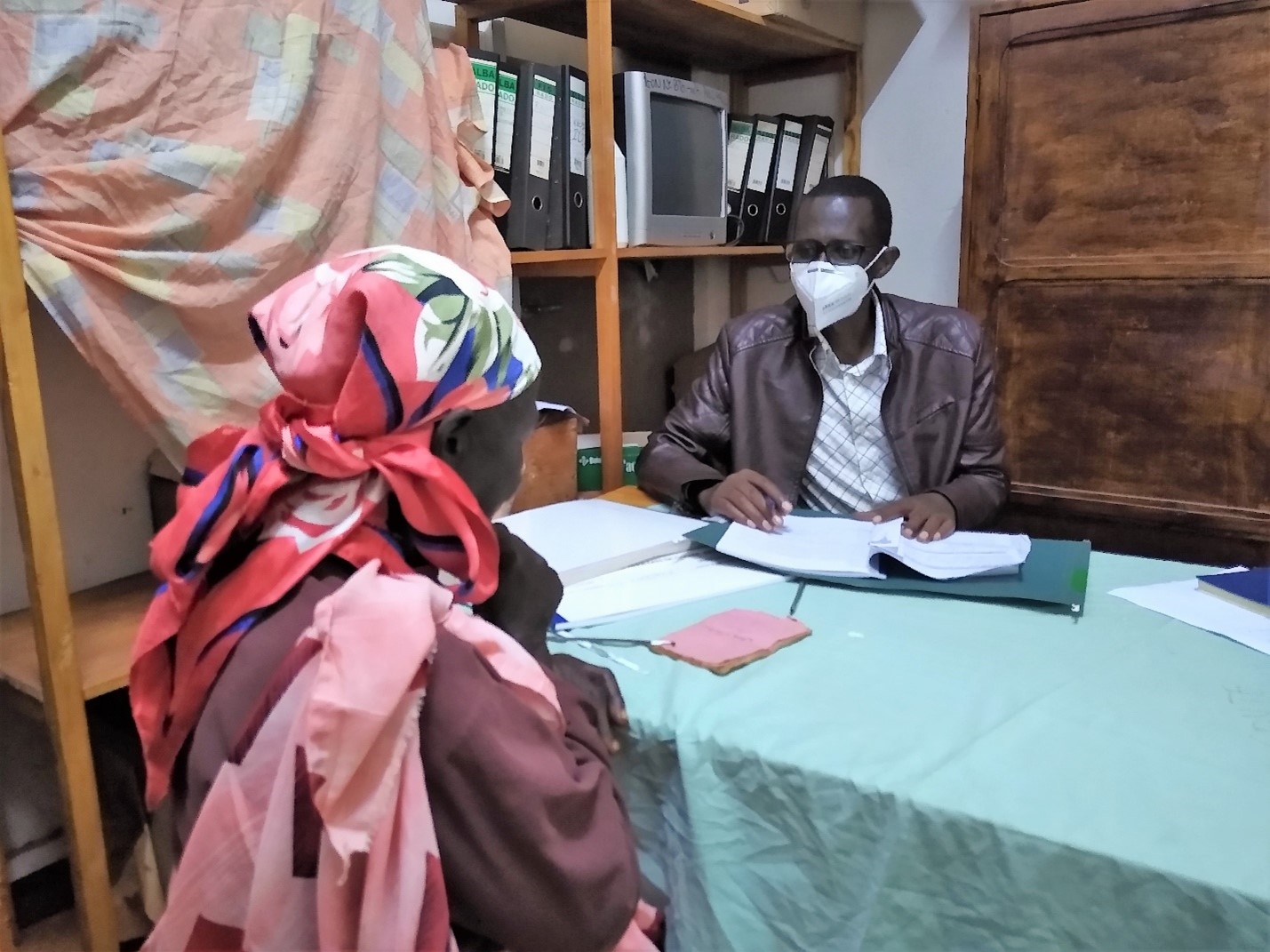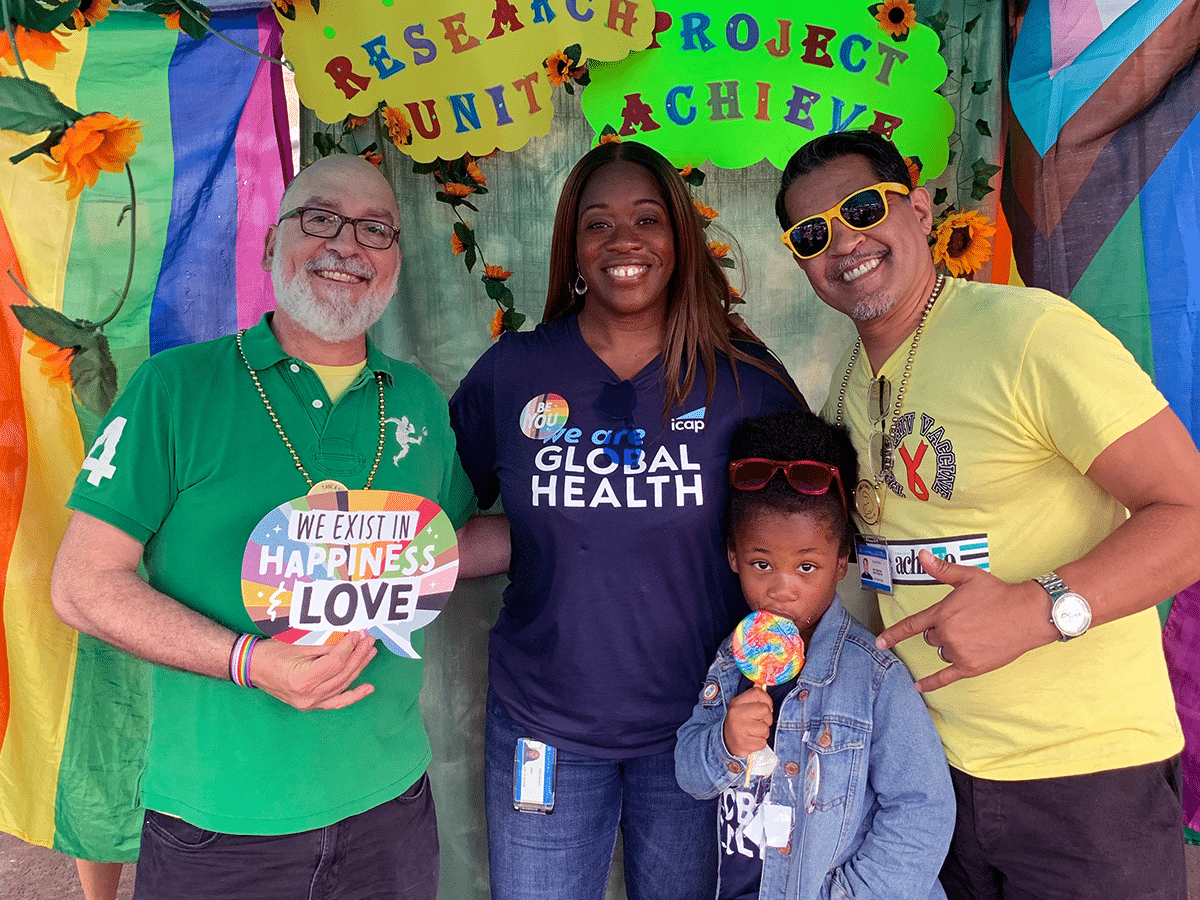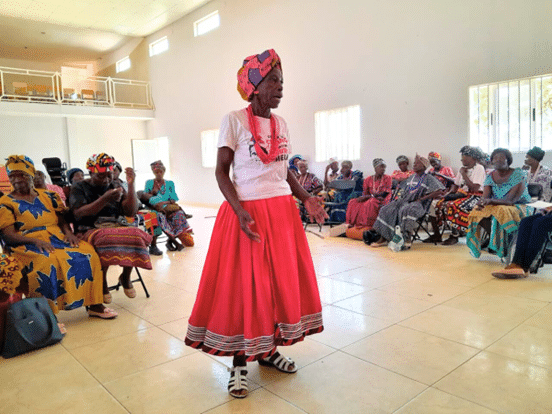After falling ill this past March, Anne* was unable to travel the 20 kilometers to Kiremba Hospital for her scheduled appointment to refill her antiretroviral supply and ran out of her medication, placing her at heightened risk of mortality and morbidity, drug resistance, and risk of transmitting HIV to others. Using a patient tracking tool developed by ICAP, her health care provider noticed her absence and quickly alerted a nearby friend, who also receives HIV treatment at the hospital. The friend was able to pay a visit to Anne’s house and offer to travel to the hospital with her to restock the medication. Touched by the personalized follow-up, Anne laughed as she told her friend: “They are not doctors, they are our dads!”
Anne is one of more than 27,000 people living with HIV accessing health services at 188 ICAP-supported facilities in Burundi offering ancillary services to reduce barriers to HIV treatment for individuals on treatment. By creating service delivery policies, procedures, and supporting resources, ICAP’s work allows health providers to better meet the challenges of caring for people living with HIV like Anne. To date, ICAP has developed simple tools to allow health providers in Burundi to better track and manage appointments, unlocking the potential for facilities to generate reminders for upcoming appointments and, as in Anne’s case, reach out to patients who have missed important appointments to offer additional support. For Nduwayezu Jean-Marie Vianney, a nurse at Kiremba Hospital, these tools have helped him to better care for his patients on treatment for HIV: “The appointment management tool allows me to organize my work and offer quality service to patients.”
The initiative is part of the Reaching Impact, Saturation, and Epidemic Control (RISE) project, a five-year multicounty effort to strengthen health systems in areas hard-hit by the HIV epidemic as they strive towards epidemic control. The project—made possible by the U.S. President’s Emergency Plan for AIDS Relief (PEPFAR) through the U.S. Agency for International Development (USAID)—is implemented through the joint efforts of a consortium of public health partners, including ICAP, with expertise in the implementation of large, complex HIV projects across the clinical HIV cascade of care.
*not her real name
A global health leader since 2003, ICAP was founded at Columbia University with one overarching goal: to improve the health of families and communities. Together with its partners—ministries of health, large multilaterals, health care providers, and patients—ICAP strives for a world where health is available to all. To date, ICAP has addressed major public health challenges and the needs of local health systems through 6,000 sites across more than 30 countries.








